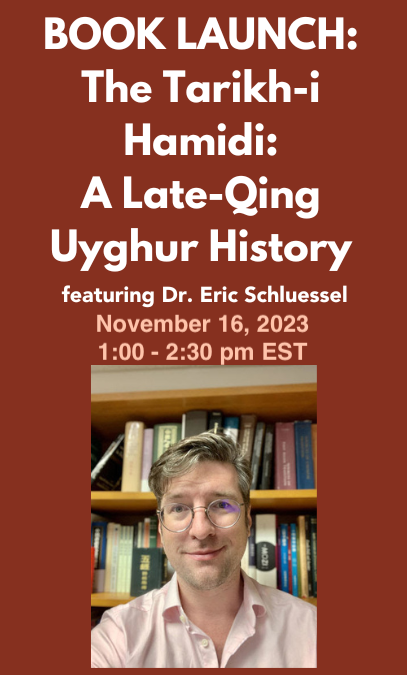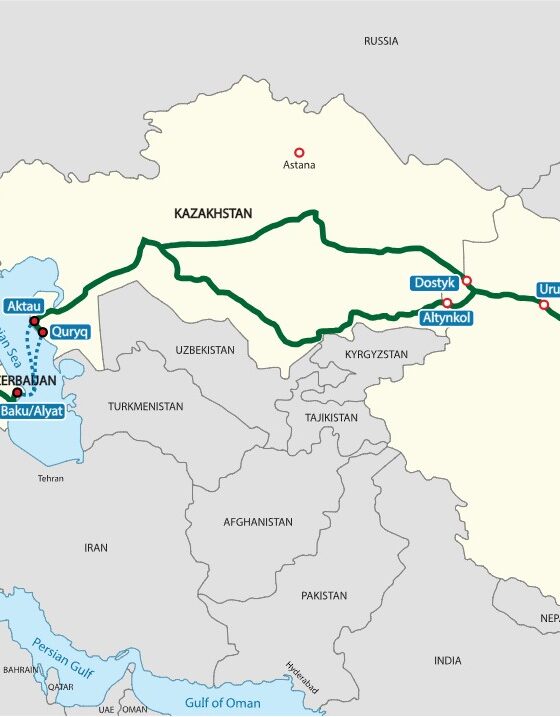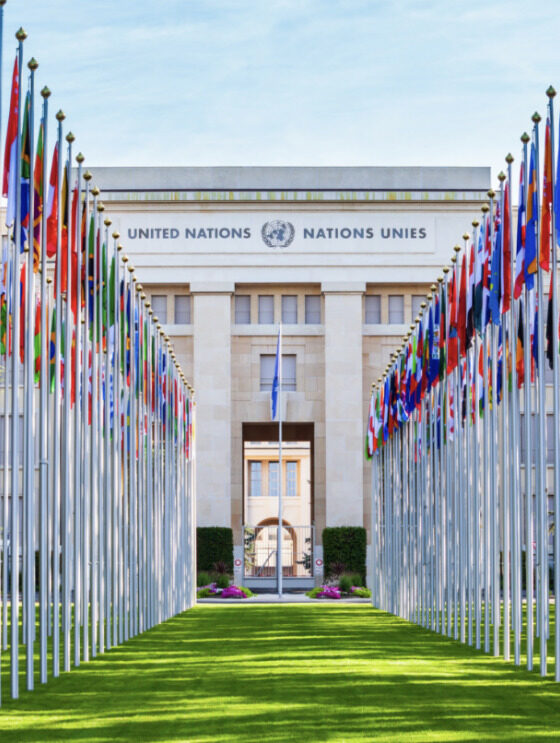Book launch featuring Dr. Eric Schluessel
| Thursday, November 16, 2023 1:00–2:30 p.m. (EST) |

Elliott School of International Affairs, 1957 E ST NW, Washington, DC Room 602 This will be a hybrid event: please register for more information on how to access the event in-person or via Zoom. |
The Tarikh-i Ḥamidi is an epic and tragic history from the region of Xinjiang in northwest China, the homeland of the Muslim-majority Uyghur people. Written in the early twentieth century, it chronicles a mass rebellion by the Muslims of Xinjiang against the China-based Qing empire from its beginnings in 1864 to the Qing reconquest of 1877 and its aftermath. Its author, Musa Sayrami, was an eyewitness to and participant in the rebellion, and he later became a servant to the state that arose from it: an emirate led by the Central Asian military commander Yaʿqub Beg.
Sayrami documents the optimism of the rebellion’s early days, when local Muslims rose up to demand justice, as well as the tragedies that resulted from its leaders’ hubris. Yaʿqub Beg’s state offered hope for Islamic rule, but he turned out to be a flawed ruler, and the Qing reconquered the region. The narrative alternates dramatic scenes of battles and intrigue with colorful legends and reflections on the nature of politics.
Sayrami wrote not only to record events being lost from memory three decades after the uprising but also to account for why the Islamic rebellion had failed. He draws on traditional Islamic scholarship to analyze the relationship between Qing and Islamic power, developing an incisive argument about politics and empire. Presenting a distinctly Uyghur perspective on China, Eurasia, and the world, the Tarikh-i Ḥamidi is at once an invaluable lens on a period of flux and a cornerstone of Uyghur writing.uses the concepts associated with irregular warfare to offer new insights for understanding the nature of strategic competition in space. Today’s most pressing security concerns are best considered using an irregular warfare lens because incidents and points of potential conflict fall outside the definition of armed conflict. While some universal rules of combat apply across all domains, conflict in space up-ends and flips those assumed standards of understanding.

Eric Schluessel is associate professor of history and international affairs at the George Washington University. He is the author of numerous studies on the social and cultural history of the Uyghur region and China, including the book Land of Strangers, which won the 2021 Fairbank Prize for East Asian History, the Uyghur studies volume Community Still Matters, and a textbook for reading the Chaghatay language. Prof. Schluessel’s research has been supported by the National Endowment for the Humanities and by a Mellon Foundation fellowship at the Institute for Advanced Study. He received his PhD from Harvard University in 2016.












